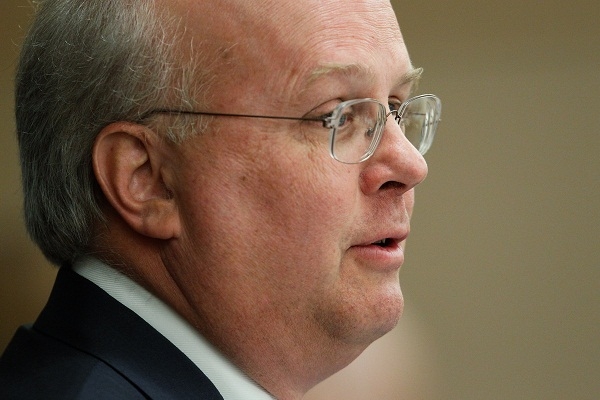I’m indebted to John Rentoul for drawing my attention to this report of a talk given by Karl Rove to mega donors at the Republican National Convention. Rove is an advisor to American Crossroads, a Republican fundraising organisation; and, having been one of Dubya’s chiefs, he remains a vital strategic voice in the party. He explained how Mitt Romney might win:
“’The people we’ve got to win in this election, by and large, voted for Barack Obama,’ Rove said, in a soothing, professorial tone, explaining why the campaign hadn’t launched more pointed attacks on the president’s character. ‘If you say he’s a socialist, they’ll go to defend him. If you call him a ‘far out left-winger,’ they’ll say, ‘no, no, he’s not.’” The proper strategy, Rove declared, was criticizing Obama without really criticizing him—by reminding voters of what the president said that he was going to do and comparing it to what he’s actually done. “If you keep it focused on the facts and adopt a respectful tone, then they’re gonna agree with you.”’
Rove believes in the eternal rule of elections: fight on the centre ground to win. On the evidence of Romney and Ryan’s convention speeches, they also believe. Romney expressed his regret that Obama has failed, while Ryan seemed to say ‘Yes We Can’ but in pursuit of the modest goals of jobs creation and welfare reform. You can take issue with Romney’s atonal delivery and Ryan’s glaring conceits, but those are for another day. For the moment, Republicans are content to seek to force President Obama, the man who set himself against the dark arts of politics, to play dirty. And, with attack ads like these, Obama is doing just that. Consequently, Rove reckons that things are going ‘well’.
Electoral positioning aside, the report from Rove’s breakfast provides a clear and sometimes alarming insight into American political culture. First, the chairman of Crossroads allegedly introduced his lawyer as the man who keeps the donors ‘out of orange jumps suits’; a comment that only a humourless prig would take issue with, although there seem to be plenty of those beneath the line of the article. Second, these few donors are being asked to fork out more than $300m dollars, which gives British politics’ funding rows some much needed perspective. Finally, the reporter writes:
‘This rare look at the mechanics of super-PAC fundraising and electoral strategy was likely not intended for reporters. I was invited as the guest of a financier who is a significant Republican donor. The financier knew that I was a journalist. At no point was I presented with, nor did I agree to, restrictions regarding the information I heard.’
The last sentence implies that formal restrictions on the reporting of politics and public affairs are now a fact of life for American journalists, or indeed anyone who wants to share information that is in the public interest. And we know this to be true. This, by definition, cannot be in the American public’s interest – and it’s no surprise to fevered anxiety expressed in the comments below the article. The British people and press are not subject to such peverse customs, and long may that continue.






Comments